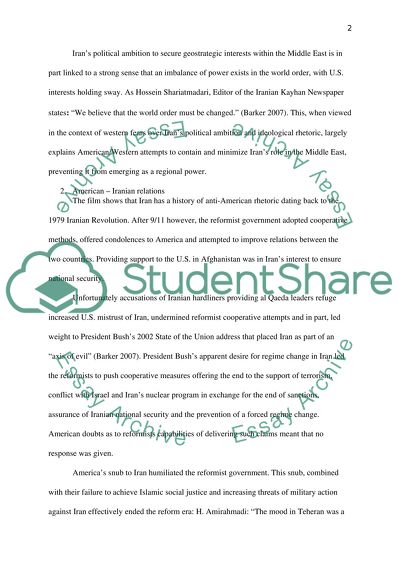Cite this document
(The Dynamics of Iranian Politics, American-Iranian Relations Assignment, n.d.)
The Dynamics of Iranian Politics, American-Iranian Relations Assignment. Retrieved from https://studentshare.org/politics/1573064-politics-since-review-of-the-video-showdown-with-iran
The Dynamics of Iranian Politics, American-Iranian Relations Assignment. Retrieved from https://studentshare.org/politics/1573064-politics-since-review-of-the-video-showdown-with-iran
(The Dynamics of Iranian Politics, American-Iranian Relations Assignment)
The Dynamics of Iranian Politics, American-Iranian Relations Assignment. https://studentshare.org/politics/1573064-politics-since-review-of-the-video-showdown-with-iran.
The Dynamics of Iranian Politics, American-Iranian Relations Assignment. https://studentshare.org/politics/1573064-politics-since-review-of-the-video-showdown-with-iran.
“The Dynamics of Iranian Politics, American-Iranian Relations Assignment”. https://studentshare.org/politics/1573064-politics-since-review-of-the-video-showdown-with-iran.


